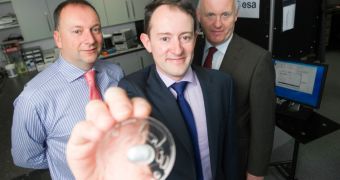Officials from the European Space Agency (ESA) announce the creation of a new device meant to help astronauts check for potential infections and diseases in space. The instrument is meant to be used primarily on the International Space Station (ISS), but other uses are also possible.
The agency is proud to announce that the blood-testing device requires a single drop of blood to analyze astronauts' health in detail. Though very small, the instrument can test for a wide range of conditions, ranging diabetes to heart diseases.
What is even more interesting is that the results come back within a few moments, allowing astronauts to take the appropriate measures in time. This is essential because living in space means that no one has immediate access to a doctor upon demand.
In addition, the tight confines of the ISS – or any other spacecraft – means that a transmittable disease will infect the entire crew in no time. This would be especially devastating during a mission to Mars, for example, where a return trip home would last 7 to 8 months.
On the ISS, things are a lot simpler, since there are always two Soyiz spacecraft docked to the lab in case of an emergency. If the worst-case scenario comes to pass, then three astronauts can return to Earth aboard such a capsule, and enter a hospital ward within 24 hours.
With the new device, it may be possible to discover potential problems a lot faster than currently possible. The instrument relies heavily on the use of a centrifuge to separate the blood drop into smaller droplets, which can then be redistributed among the miniaturized tests on the device.
“Biochemical analysis aboard the Space Station is becoming a high priority for the human physiology experiments carried out there,” explains ESA Directorate of Human Spaceflight and Operations representative, Nadine Fritz.
“The retirement of the Space Shuttle has significantly reduced the amount of cargo we can download from the Station, so it makes sense to do what analysis we can do in orbit,” she goes on to say.
In addition to diabetes and heart diseases, the devices would also be able to identify the onset of conditions such as liver and kidney damage, which are usually very dangerous. The team that developed the instrument was funded by the ESA General Support Technology Program (GSTP).
On October 28, ESA signed an agreement with Irish company Radisens Diagnostics, for the development of a version of the device that can work in microgravity.
“Winning this contract from ESA is a significant endorsement of our ‘sample-to-answer’ device and the breadth of blood tests it can offer,” Radisens Diagnostics CEO Jerry O’Brien comments.

 14 DAY TRIAL //
14 DAY TRIAL //